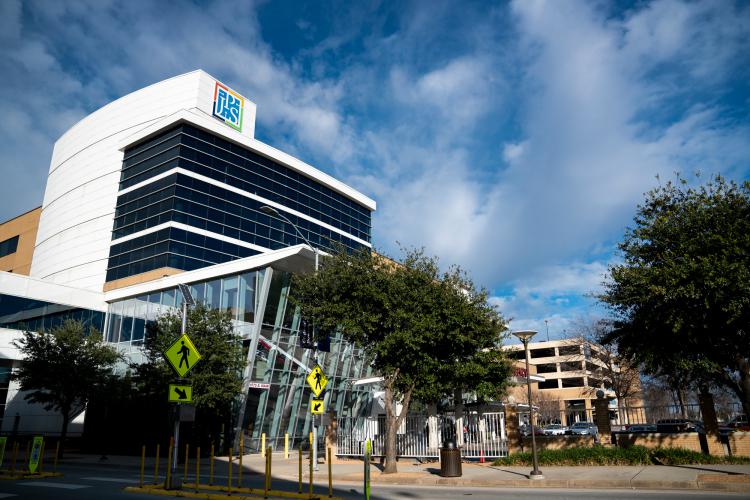
JPS Health Network is one of only 10 hospitals across the nation to be awarded a competitive grant aimed at reducing addiction to opioid painkillers.
Emergency Medicine physician James D’Etienne said the health network will receive a total of $1.5 million divided into three equal installments over the next three years. The money from the Substance Abuse Mental Health Service Administration will be used to establish programs which will help to wean patients off addictive pain killers.
“This will allow us to build on the great work that is already being done in the Emergency Department and the hospital system-wide,” D’Etienne said. “It’s important to manage the source of opioids because addiction is fueled by the amount of opioids out there. We can limit availability by finding alternative methods to control pain. JPS hopes to share what it learns with other area healthcare providers to join forces with them in the battle against opioids.”
D’Etienne said the money will allow JPS to develop and implement best practices for replacing opioids with non-addictive painkillers. It will also allow the health network to secure medicines that help break addiction to opioids by relieving withdrawal symptoms.
“One of the barriers to escaping opioids is the severe withdrawal symptoms,” D’Etienne said. “There are medicines that can be used which prevent withdrawal symptoms and allow people to function normally without cravings and other issues. This allows them to get their lives back.”
It's important to manage the source of opioids because addiction is fueled by the amount of opioids out there.
Dr. Dustin Demoss, an addiction specialist in Behavioral Health at JPS, said opioid abuse often goes hand in hand with other physical and mental health issues.
“Drug use is tough on your whole body, damaging your heart and exacerbating hypertension,” Demoss said. “Drugs also can trigger mental health issues. By addressing both the underlying problems and the drug abuse at the same time, we will have a much better chance at long-term success in keeping their patients healthy.”
JPS is no stranger to the fight against narcotic painkillers, according to Dr. Richard Teames, Director of Regional Anesthesia at JPS and chairman of the health network’s Pain Stewardship Committee. JPS leaders have worked for the past three years to find and implement non-addictive alternatives when it comes to pain medication plans for surgery patients.
Use of non-narcotic pain relievers like Tylenol, non-steroid anti-inflammatory medications including Celebrex, nerve blocks and muscle relaxers combine to create non-addictive, safer forms of pain relief than opioids, Teames said. For people with persistent pain from medical conditions, alternatives like relaxation techniques, massage and touch therapy and yoga can all be effective at managing pain.
Teams said JPS reduced the number of narcotic painkillers prescribed to its patients by 22 percent in 2019. Over the same period of time, the health network’s Hospital Consumer Assessment of Healthcare Providers and Systems survey scores went up 19 percent. More effective pain relief means patients can go home quicker after surgery, making them more comfortable while reducing their medical bills. In other words, the alternative pain killers have proven to be more effective than the narcotics they replaced.
The previous success was a major factor in why JPS was selected for the federal grant money, according to D’Etienne.
“This builds on the work that has been done here over the past three to four years,” D’Etienne said. “We’ve been at the forefront of addressing the overuse of opioids, which certainly contributed to the award being granted for us.”
